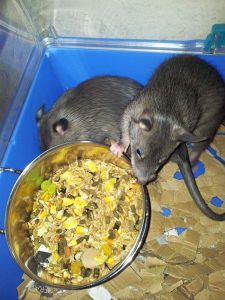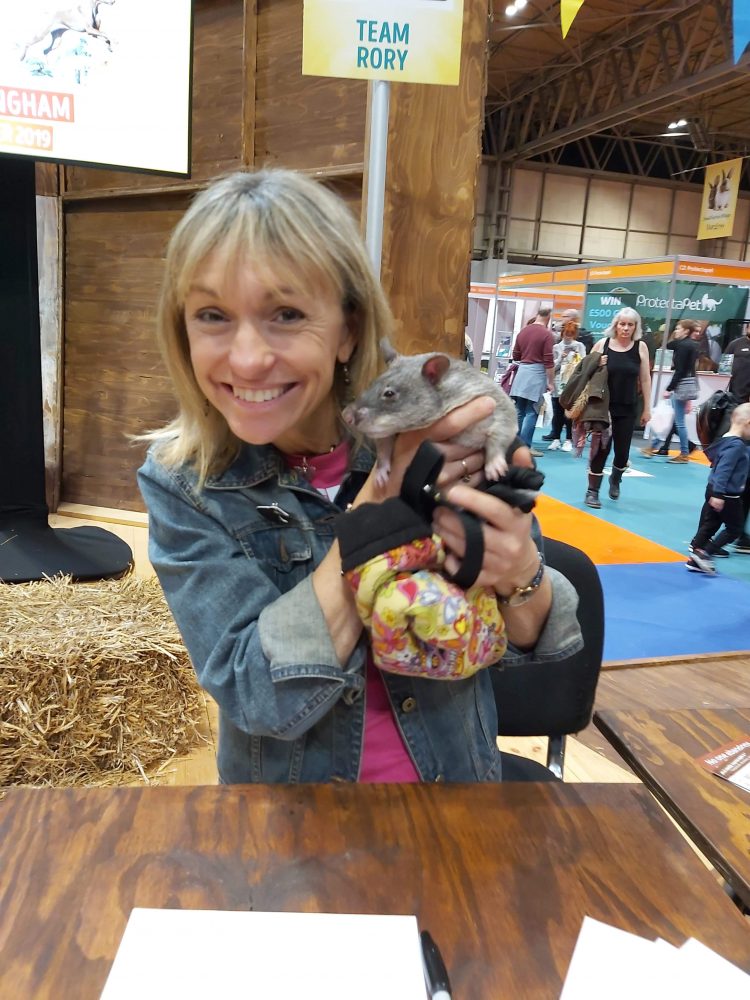Pouched rats love to enjoy a variety of different foods, but knowing just how, when and what to feed them can be confusing for first time owners. Being able to find out what they eat naturally in the wild can be difficult due to limited studies in this area of how they live naturally in the wild.
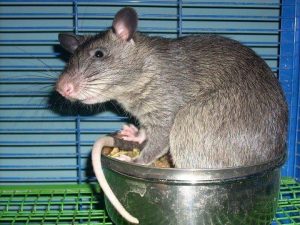
The list of foods on this page are suggestions of foods that are safe to try, although whether your pouched rat will like them will differ from pouched rat to pouched rat.
All foods in the following lists should be fed alongside a readily available supply of a dry mix consisting of a good quality rat mix (avoid hamster food as it is high in fat) combined with a fruity parrot mix (with chilies removed). fresh fruit and veg should be fed daily and any uneaten food waste removed daily.
My rule of thumb is if it is not a food that they could naturally find in the wild then it is best to avoid… you are unlikely to see a pouched rat fishing so fish is not a food recommended for them especially oily fish like tuna. Foods high in or with added salt, fat or sugar are to be avoided along with any dairy foods containing milk e.g. Yogurt, cheese, cream etc
Fruits
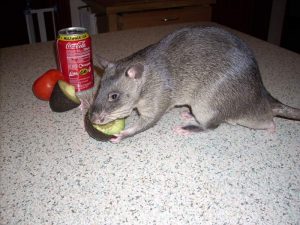
Apple – All pips should be removed
Apricots – Stone should be removed
Avocado – Skin and stone should be removed
Bananas
Blackberries
Blackcurrants
Blueberries
Cherries – With stones removed
Coconut
Cranberries
Dates
Figs – In small amounts
Grapes
Kiwi – Without the skin and in moderation
Melons – All varieties
Papaya
Peach – With stones removed
Pears
Persimmon (Sharon Fruit)
Pineapple
Plums – With stones removed
Pomegranate
Prunes
Rasins
Raspberries
Strawberries
Vegetables

Asparagus
Aubergine (Egg plant)
Bean sprouts
Beetroot – This may change colour of feces. Do not feed the pickled beetroot.
Bok Choy
Broad beans – Cooked only
Broccoli
Brussels sprouts – Cooked only
Butternut squash
Canneletti beans
Carrots
Cauliflower
Celeriac
Chick peas – Cooked only
Courgette (Zucchini)
Green beans – Cooked only
Kidney beans – Cooked only
Mange tout
Mushrooms
Parsnips
Peas – Frozen or fresh
Peppers – All colours. Check they are not too spicy first
Potato – Cooked only
Pumpkin – Cooked only
Savoy Cabbage
Soy beans – Must be cooked
Spring greens (Spring cabbage)
Swede
Sweet corn – Frozen, fresh, on the cob or off
Sweet peppers
Sweet potato – Cooked only
Turnip
Salad
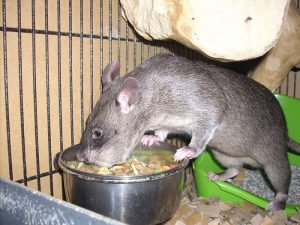
Celery
Cress
Cucumber
Kale
Lettuce – In small amounts
Radish
Rocket
Sugar snap peas
Tomato – This will change the colour of their urine.
Water chestnuts
Watercress
Seeds and Nuts
Be aware to check the freshness of nuts and that they come from a reputable source to risk exposure to Aspergillus fumigatus, a fungus that grows on soil, plant debris and rotting vegetation.
Almonds – Unsalted only and in moderation
Cashews – Unsalted only
Pistachios – Unsalted only and in moderation
Peanuts – Unsalted only and in moderation
Pumpkin seeds – In moderation due to high fat content
Sunflower seeds – Unsalted only
Walnuts – Whole or unshelled
Meat
Chicken – This is the healthiest meat.
Chicken bones – Great for gnawing on.
Ham
Turkey
Other Foods
Bread – Whole wheat is best and fed either in small pieces or toasted
Dandilion leaves – Make sure they are well washed and free from pesticides
Dry rolled oats – With no added sugar or salt
Eggs – Raw, poached or hard boiled
Pasta – All varieties dried or cooked
Rice – Brown rice is the better option
Insects
Crickets
Locusts
Mealworms
Morio worms
Do not feed wild caught insects due to a risk of them carrying disease or internal parasites
